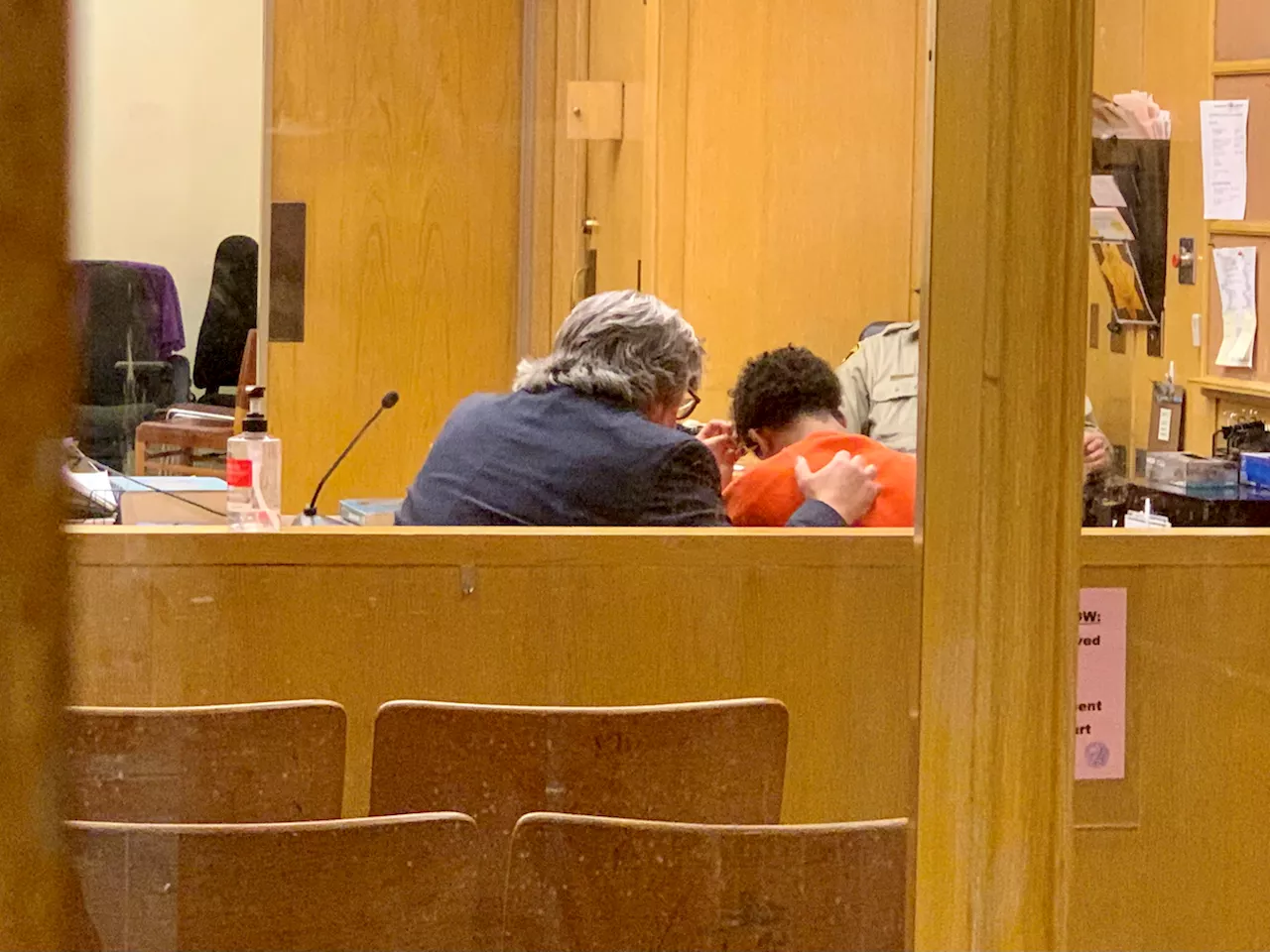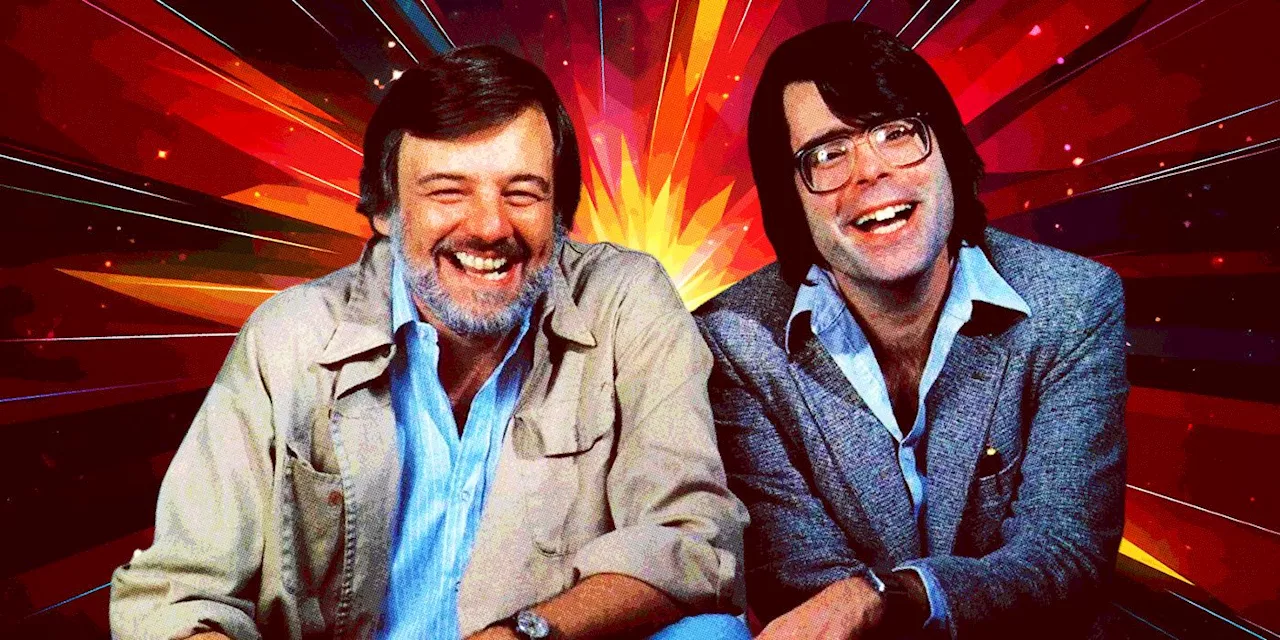Can an expressive young conductor convince a veteran symphony orchestra to play with all its heart?
Randall Craig Fleischer greets the audience at the Alaska Center for Performing Arts in October 1999.
''Put the brownie in your mouth, '' a student volunteered. Fleischer leaned over, ready to press his face directly into the brownie. Fleischer, who retains musical directorships with the Hudson Valley Philharmonic in New York and the Flagstaff Symphony Orchestra in Arizona, is a jet-setting composer, arranger and conductor who speaks to children and adults using the same vernacular. If anything, he reserves his most irreverent side for the grown-ups, as if to drag them down forcefully, away from the rarefied air of musical snobbism.
Words are, after all, just another communications tool, like the lift of an eyebrow, the tender father-dancing-with-young-daughter stoop, the left-hand punch, the Tina Turner toss of the hair, the frenzied upward sniff -- all of them emphatic gestures Fleischer employs to direct musicians to play in an emotionally charged but technically precise way.
Music education is one of the young conductor's fortÀs. He produced an award-winning interactive CD-ROM for children featuring Prokofiev's ''Peter and the Wolf.'' He developed Cool Concerts for Kids, a program used by orchestras around the United States. And in his Hudson Valley post, Fleischer increased the number of young people's concerts from four to 16.
He'll also be appraising his real students, not fifth-graders and family concert attendees but the 80-plus members of the Anchorage Symphony Orchestra. And what students they are: Some, including Eagle River cellist Arthur Braendel, have played with the symphony since before Fleischer was born. Some also play for Anchorage Opera and the Anchorage Concert Chorus as well as other gigs. Especially in the fall, busier musicians are booked five or six nights a week.
When he joined the Anchorage Symphony, he lived in Seward and, he estimates, commuted 7,000 miles the first year so he could play. Martinson understands the fine line between wanting to excel as a musician and simply losing the will and the energy to keep trying. ''The third level of Randy's job -- beyond his stick work, beyond his rehearsal technique -- is to drive the players to perform well, '' Martinson said.
The main thing you notice in watching Fleischer rehearse the orchestra is that he does not waste a moment. He arrives at each rehearsal with a precise itinerary of problem spots and weaknesses to be addressed. He allows the orchestra to play through a movement of the Barber concerto with only two interruptions. Then at the end -- no time for self-congratulation yet -- he announces, ''OK! OK! Now let's go back in and fix a few things.
If the musicians resist such comments, it's not apparent. Several said they feel more respected because Fleischer so evidently prepares and studies his scores before conducting them. ''Some years, our attention to details had been getting lax, '' said principal bassist DeLap. ''We're playing material we've played before, but playing it in ways we've never played it.'' But another musician said, ''Remember, this is the honeymoon period.
The concentration required during these rehearsals is monumental. Seven dozen faces peer up at Fleischer expectantly, 840 fingers ready to fly as soon as he lifts his baton. No one wants to botch it during the upcoming performance. It doesn't help that Fleischer expects so much: a little more crescendo here, change that ''piano'' to ''pianissimo.'' Italian words fly all over the place. Or perhaps the opposite is true: It helps immensely that Fleischer expects so much.
DeLap, who played with the Wichita Symphony in Kansas before moving to Alaska, looked forward to the day when Anchorage's orchestra would rival her hometown orchestra and surpass it. She waited a long time, watching the symphony evolve under each music director: fracturing when musicians were pitted against each other, healing and unifying, moving ahead as musicians dedicated themselves more intensely.
In 1974, a $10,000 grant made it possible for the orchestra to perform in Kenai, Homer and Kodiak. ''The full orchestra had set up in the auditorium and was ready to perform, '' recalled symphony veteran Kurt Pasch. ''They were just waiting for the audience to show up. By 8:10 p.m. the audience consisted of the bus driver, an orchestra member's wife and one Kenai family.
''Under the shell of the crustiest, most cynical musician, '' he said, ''beats the heart of a 9-year-old kid who realized one day that he loved music and wanted to dedicate himself to it for the rest of his life. We're all just big 9-year-olds at heart. That's who I'm trying to reach.'' Don't expect Fleischer to be seduced by the Alaska lifestyle, however. In fact, there are signs that he may not quite understand us. Over lunch recently, while discussing why Americans don't embrace classical music as readily as Europeans, Fleischer pointed out that we were, until just a generation or so, a nation of pioneers. ''We're a Paul Bunyan culture, '' he said. ''Really! There were people living in log cabins very recently -- less than 100 years ago.
Born in Canton, Ohio, Fleischer grew up surrounded by rhythm. His father, a shoe store owner, also worked as a big-band drummer and symphony percussionist. Fleischer claims not to have perfect pitch, unlike his comedian wife, who also earned a degree in music. But he inherited a strong sense of beat. He resisted music at first, preferring basketball and football to piano lessons. But after being persuaded by his mother to join a high school choir, Fleischer was hooked.
Fleischer travels 30 weeks a year, every week enduring flight cancellations, missed planes and red-eye flights. After a cancellation recently, he avoided missing a rehearsal only by calling the local symphony office from Seattle and urging workers to find some Alaska Airlines bigwig and music lover who would help him out of the mess. They did. A vacant seat on another flight magically opened. He grabbed it. And the orchestra played on.
Canada Latest News, Canada Headlines
Similar News:You can also read news stories similar to this one that we have collected from other news sources.
 The 7 Craziest Oscar-Night of All TimeFrom Mariah and Whitney’s 1999 duet to “La La Land” fever.
The 7 Craziest Oscar-Night of All TimeFrom Mariah and Whitney’s 1999 duet to “La La Land” fever.
Read more »
 Does Great Design Lead to Great Automotive Brands?Aesthetics can only get you so far. From exquisite supercars to futuristic Teslas, how big a role does design play in the automotive industry?
Does Great Design Lead to Great Automotive Brands?Aesthetics can only get you so far. From exquisite supercars to futuristic Teslas, how big a role does design play in the automotive industry?
Read more »
 Four-time DA candidate represents Mission Rec killing suspectBill Fazio, who ran for DA in 1995, 1999, 2003 and 20011, took over the representation last week from attorney Lawrence Strauss.
Four-time DA candidate represents Mission Rec killing suspectBill Fazio, who ran for DA in 1995, 1999, 2003 and 20011, took over the representation last week from attorney Lawrence Strauss.
Read more »
 Montana judge declares 3 laws restricting abortion unconstitutionalThe decision cited a 1999 Montana Supreme Court ruling that said the state Constitution's right to privacy includes a woman's right to abortion access.
Montana judge declares 3 laws restricting abortion unconstitutionalThe decision cited a 1999 Montana Supreme Court ruling that said the state Constitution's right to privacy includes a woman's right to abortion access.
Read more »
 Tokaimura tragedies: How Hisashi Ouchi became the most radioactive manAfter the 1999 Tokaimura nuclear accident, Hisashi Ouchi became the world's most radioactive man and was kept alive in terrible conditions for 83 days.
Tokaimura tragedies: How Hisashi Ouchi became the most radioactive manAfter the 1999 Tokaimura nuclear accident, Hisashi Ouchi became the world's most radioactive man and was kept alive in terrible conditions for 83 days.
Read more »
 This Is a Great Stephen King Adaptation but an Awful George Romero MovieStay up to date with new movie news, watch the latest movie trailers & get trusted reviews of upcoming movies & more from the team at Collider.
This Is a Great Stephen King Adaptation but an Awful George Romero MovieStay up to date with new movie news, watch the latest movie trailers & get trusted reviews of upcoming movies & more from the team at Collider.
Read more »
